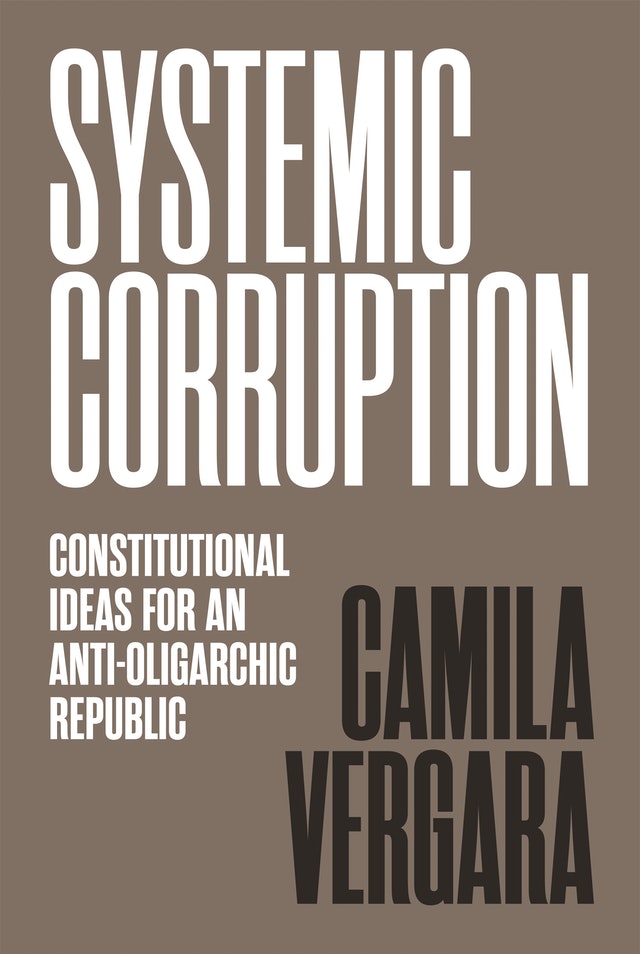Systemic corruption
constitutional ideas for an anti-oligarchic republic
- ISBN: 9780691207537
- Editorial: Princeton University Press
- Fecha de la edición: 2020
- Lugar de la edición: Princeton. Estados Unidos de Norteamérica
- Encuadernación: Cartoné
- Medidas: 24 cm
- Nº Pág.: 288
- Idiomas: Inglés

This provocative book reveals how the majority of modern liberal democracies have become increasingly oligarchic, suffering from a form of structural political decay first conceptualized by ancient philosophers. Systemic Corruption argues that the problem cannot be blamed on the actions of corrupt politicians but is built into the very fabric of our representative systems.
Camila Vergara provides a compelling and original genealogy of political corruption from ancient to modern thought, and shows how representative democracy was designed to protect the interests of the already rich and powerful to the detriment of the majority. Unable to contain the unrelenting force of oligarchy, especially after experimenting with neoliberal policies, most democracies have been corrupted into oligarchic democracies. Vergara explains how to reverse this corrupting trajectory by establishing a new counterpower strong enough to control the ruling elites. Building on the anti-oligarchic institutional innovations proposed by plebeian philosophers, she rethinks the republic as a mixed order in which popular power is institutionalized to check the power of oligarchy. Vergara demonstrates how a plebeian republic would establish a network of local assemblies with the power to push for reform from the grassroots, independent of political parties and representative government.
Drawing on neglected insights from Niccolò Machiavelli, Nicolas de Condorcet, Rosa Luxemburg, and Hannah Arendt, Systemic Corruption proposes to reverse the decay of democracy with the establishment of anti-oligarchic institutions through which common people can collectively resist the domination of the few.
Part i. systemic corruption and the material constitution
1 Corruption as Political Decay
2 Elitist Interpretations of the Republic
3 On Material Constitutional Thought
Part ii. Plebeian constitutional thought
4 Machiavelli on the Plebeian Power to Create and Punish
5 Condorcet on Primary Assemblies
6 Luxemburg on Popular Emancipation
7 Arendt on the Republic of Parties and Councils
Part iii. Anti-oligarchic institutions for the twenty-first century
8 Contemporary Plebeian Thought
9 Constitutionalizing the Power of Those Who Do Not Rule







